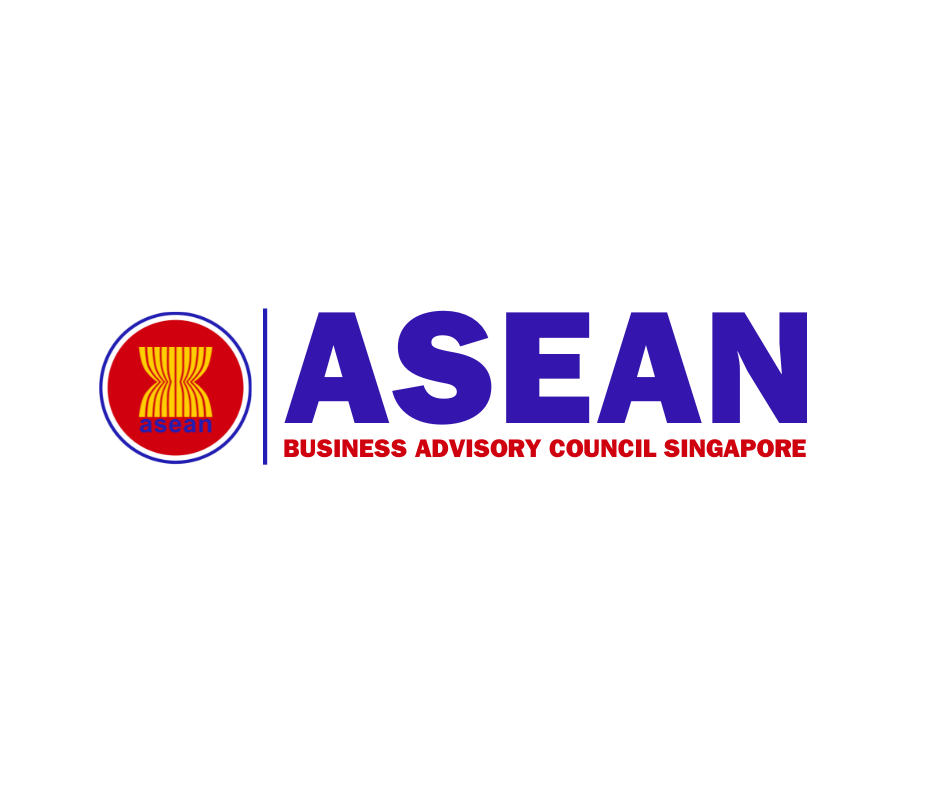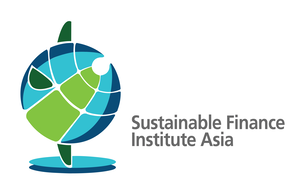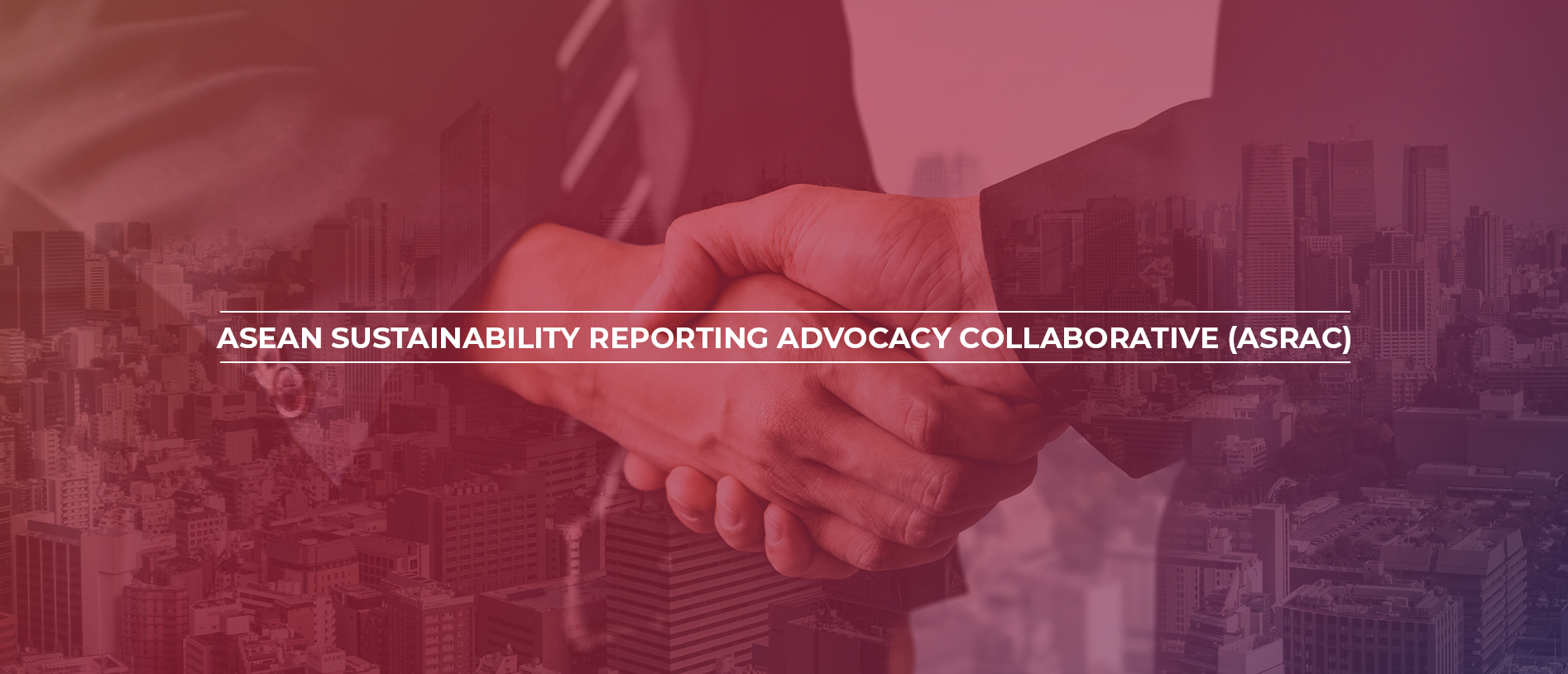ASEAN SUSTAINABILITY REPORTING ADVOCACY COLLABORATIVE (ASRAC)
CHAIRS

Jukhee Hong
Executive Director, ASEAN-BAC MY
MEMBERS



KNOWLEDGE PARTNER


CONCEPT & OBJECTIVES
This initiative is designed to provide valuable input that reflects the views of businesses across ASEAN through active advocacy and engagement with standard setters and policy stakeholders.
The objective of ASRAC is to advocate for the simplification and consolidation of sustainability reporting processes, making them more efficient and accessible for businesses in the region. By actively engaging with stakeholders responsible for setting reporting standards, the initiative is to inform and influence the development of policies that impact sustainability reporting in ASEAN. This collaborative effort seeks to advocate for the need to create a more streamlined and effective reporting framework, enabling businesses to meet sustainability goals while enhancing transparency and accountability across the region.
STATEMENT OF THE ASEAN SUSTAINABILITY REPORTING ADVOCACY COLLABORATIVE (ASRAC)
INTRODUCTION
IN RESPONSE to the ASEAN Strategy for Carbon Neutrality (Strategy 5), to promote credible and common standards by developing recommendations to standardise the climate reporting framework and principles in line with international standards (e.g., ISSB); and
RECOGNISING the increasing investors and other finance providers’ demand for climate and sustainability-related business disclosures, the pressure faced by businesses and SMEs in the Global Supply Chains (GVC) and the importance of mainstreaming sustainability reporting;
RECOGNISING the increasing investors and other finance providers’ demand for climate and sustainability-related business disclosures, the pressure faced by businesses and SMEs in the Global Supply Chains (GVC) and the importance of mainstreaming sustainability reporting;
RECOMMENDATIONS
ASEAN-BAC, the principal private sector body in ASEAN, hereby recommends the following:
(1) Using ISSB Standards as the global baseline and incorporating other necessary information requirements to achieve consistency and effectiveness among Asia, Europe, and the Americas, utilising a ‘building blocks’ approach.
(2) Advocacy to provide transition relief to ASEAN businesses from the obligation to report on the European Sustainability Reporting Standards (ESRS) until a single set of global sustainability reporting standards is formally recognised.
(3) Ensure the proportionality of reporting requirements within this framework, which aspires to achieve high-quality and practical reporting that addresses the diverse needs of the relevant stakeholders and permits scalability.
PATHWAYS
ASEAN-BAC, through ASEAN-BAC Malaysia (Chair of ASEAN-BAC 2025), aims to amplify these recommendations by way of:
(1) Consultation with the ASEAN Capital Market Forum (ACMF), Finance Ministries and central banks in ASEAN member states (AMS), to understand directions and concerns at the AMS and ASEAN levels.
(2) Consultation with ASEAN Economic Ministers and the ACMF - to understand gaps and seek alignment to simplify reporting. Transitional relief is required.
(3) Consultation with the International Sustainability Standards Board (ISSB) through relevant national standard-setters and/or regulatory bodies in collaboration with business councils to reflect the concerns of the ASEAN private sector and voice the need for a simplified approach and requirements for SMEs.
(4) Advocate for adequate ASEAN representation on the ISSB’s board, consultative bodies, and other relevant bodies to ensure the voice of ASEAN businesses and governments (on behalf of their peoples) is heard in global policymaking and standard-setting processes.
(5) Support the Single Access Point for ESG Data (Safe) Initiative, an independent reporting data platform sandbox building on official alignment efforts between ESRS, ISSB, and GRI that will identify and collect data through a common platform to facilitate interoperability of existing standards.
(6) Support capacity-building and leverage the existing body of work produced by professional bodies and think tanks (GRI, ACCA, Bloomberg NEF)
This advocacy focus draws input from a baseline report produced by the knowledge partner Association of Chartered Certified Accountants (ACCA) in consultation with the knowledge Partner Sustainable Finance Institute Asia (“SFIA”) and APEC Business Advisory Council Malaysia stakeholders.
Signed by members of ASRAC



